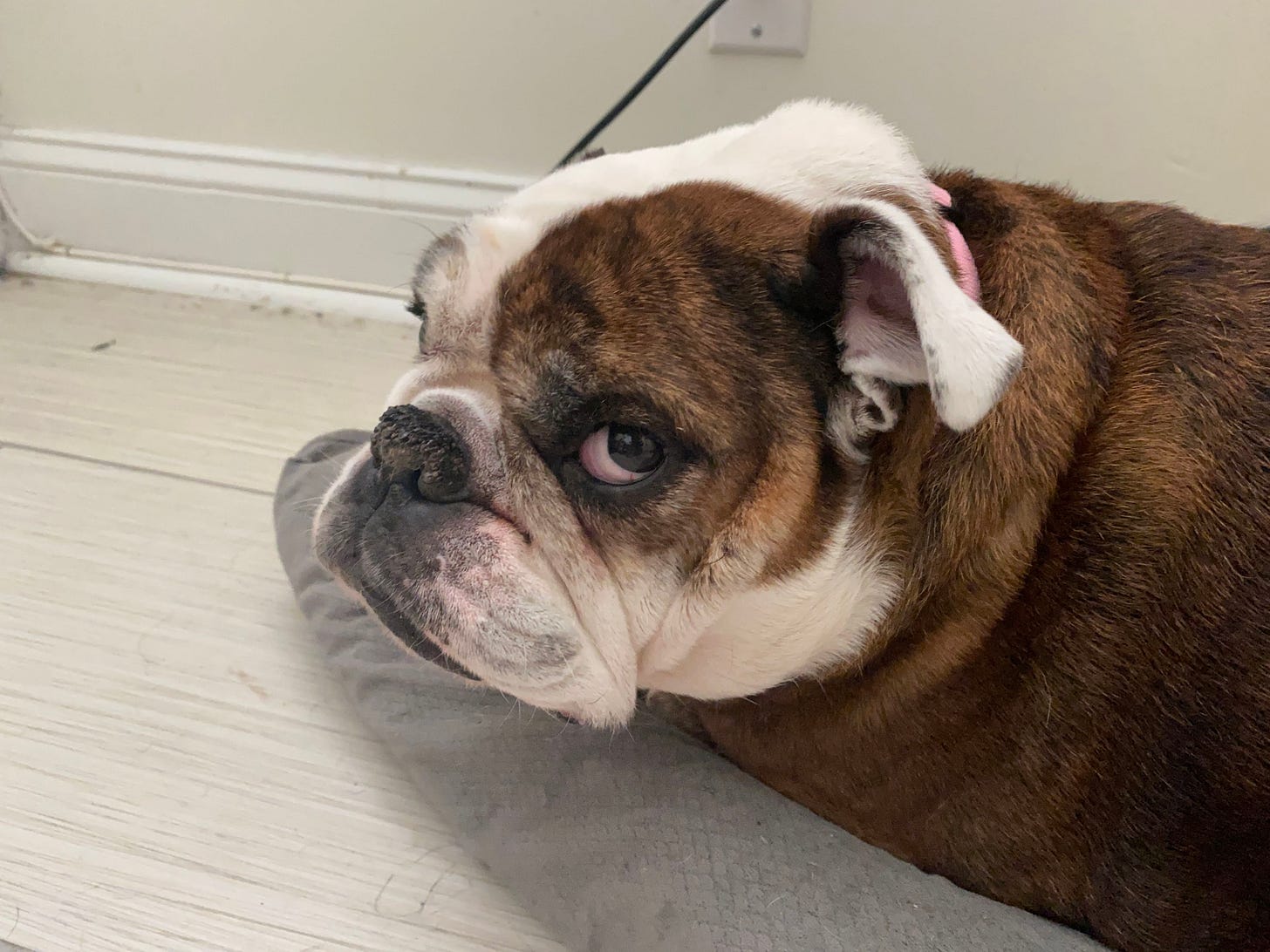"No one told me how bad it was outside. No one told me how much it sucks."
Robert F. Kennedy Jr. is a conspiracy theorist and should be covered by the media as such.
This week’s soundtrack: Eden Derso featuring DJ Mesh - “אף חד”
Over the weekend, The New York Post published two stories about a press dinner that Robert F. Kennedy Jr. held with journalists. The first, from the gossipy Page Six, is written in that section’s signature austere and mature style, complete with the word “fart” six times in the copy, once in the headline and once in a photo caption. The latter story was the one that made waves much more in my world, both personal and professional.
“RFK Jr. says COVID may have been ‘ethnically targeted’ to spare Jews” screams the headline from Saturday. In the story, Kennedy is quoted as saying that “COVID-19 is targeted to attack Caucasians and black people. The people who are most immune are Ashkenazi Jews and Chinese.” The Post’s scoop was picked up by many publications, even prompting the usually restrained New York Times to call the remarks “Bigoted” in the story’s headline.
He later clarified that he was talking about COVID-19 as maybe “a kind of proof of concept for ethnically targeted bioweapons," which is, of course, laughable. Things are not going well in your life when your father’s namesake foundation puts out a statement specifically calling your remarks “deplorable.”
To dispense with the obvious, everything Kennedy said in his rant is incorrect. Hasidic and ultra-orthodox Jewish communities were among the most-stricken by the virus early in the pandemic, while China has “officially” lost more than 120,000 citizens to the disease (China’s authoritarian nature makes official statistics hard to discern). And, to put a fairly fine point on it: Jewish people of Central and Eastern European heritage are, in fact, Caucasians.
COVID-19 is new enough that information could come out that it affects different populations differently (while accounting for all variables, of course), as happens with disease sometimes. But, as of now, there is no such data available. Robert F. Kennedy Jr. is a conspiracy theorist.

Yair Rosenberg tackled Kennedy’s conspiratorial bent in The Atlantic, writing"Seen in the context of Kennedy’s career, what’s surprising is not his foray into anti-Semitism, but that it took him this long to arrive here." Rosenberg’s piece moves into the well-trod notion that all conspiracy theorists eventually end up with anti-Semitism, a notion that I have to remind myself that not everyone knows. As a Jewish person, I find it kind of rote that pretty much any conspiracy theory leads back to us (QAnon, COVID-19 vaccine conspiracies, the moon landing, you name it…) , but I get that non-Jewish people and non-conspiracy-minded people don't think about this sort of thing.
Conspiracies, anti-Semitism and anti-Semitic conspiracies have been a part of culture for ages; they’ve been part of popular culture (Google Grimm’s Fairy Tales for a quick glimpse of the way it fits within the Western canon) for hundreds of years. Nonetheless, the access we all have to conspiracy theories is what elevates them to the level that a presidential candidate is comfortable saying them in front of the press. These sort of things have been said behind closed doors forever, but doing it in public is a fairly new phenomenon. The Nixon tapes, this is not.
The issue of covering long-shot presidential candidates is something with which the press struggles. Kennedy’s name resonates in the American consciousness in a way that other names do not, but his recent life’s work has mostly been on the anti-vaccine conspiracy circuit (Anna Merlan’s book is a terrific introduction to that world). I mentioned him offhand a few weeks ago in writing about the ways the press decides what to cover and what not to cover, noting that Kennedy does somehow have fans.
The numbers, unfortunately, bear this out. Kennedy is polling with more than 10% of voters in a theoretical Democratic primary contest against the current president and Marianne Williamson (who also has some pretty conspiracy-adjacent views). I struggle with a coherent answer to “how should the press cover Kennedy?” largely because ignoring him seems not to be on the table.
The amount of media in the digital age and the need for content has shown that news judgment is less important than the need to fill space. This is, of course, one of the driving factors in cable television news; 24 hours is a lot of space to fill, which means that not everything is going to be important and exciting. Gatekeepers need to make decisions and the decision, more often than not, falls on the side of “have people heard of this person and will this person bring forward a stronger emotion?”
This is why Kennedy gets coverage though Williamson doesn’t. Kennedy’s name is a shortcut, even if the Camelot-worshipping generation is dying out. That shortcut means that a small subset of Democratic voters have an easy alternative to the unpopular sitting president.
If the press’ job is to elevate the truth, Kennedy should not be covered with anything resembling seriousness. But, more than anything, keeping off airwaves other than when he is legitimately showing his ass – as he did this weekend – is the strongest decision a newsroom can make (as opposed to, say, covering his workout routine. A true recent low point.).
Programming Note
There will be no edition of The World is Bent next week. My schedule this coming week is such that I will not be able to produce one in the way that I’d prefer. It will be back on July 31.
Lulu Update
I didn’t get any photos because I was freaking the hell out, but Lulu had a health scare over the weekend. She had trouble getting comfortable and her stomach was a little bit distended, which are signs of gastric dilatation and volvulus (bloat). My beloved first dog Nino died of bloat, so I was worried about the fatal condition. I took her to the emergency vet, where she got x-rays to find out that she just was regular gassy.
Of course, the staff at the emergency vet office loved her. She was hamming it up for them, was patient(ish) with the x-rays and was very affectionate toward the doctor who examined her.
A Recommendation: Exquisite Writing in the Service of Opinions, Even If I Don’t Agree with Everything in the Piece
I’m mostly writing here to recommend Mitch Therieau’s piece in The Drift about Jack Antonoff, as the writing is perfectly stylized and crafted in the service of what I’d consider a thesis in search of meaning. The base notion that Jack Antonoff’s production is ever-present (and a little bland) is nothing with which to argue, but Therieau’s criticisms of Antonoff’s production and the greater moment in culture – “in other words, according to the logic of the mood playlist, a tool to enhance or modulate your emotional state” is a criticism of Spotify’s playlists, which strikes me as the purpose of all playlists since people started making them – and the state of the industry. I’m not a big fan of Antonoff (I enjoy his production on Midnights and 1989, but don’t care for any of his other work), so I wanted to agree with the points, but mostly I just loved the writing. It is poetic and well-crafted, even if I don’t love all the finely-structured points that Therieau makes.







